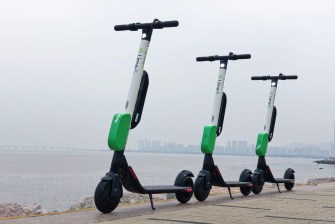How Much Would Most People Pay For a Shorter Commute?
 Data: IBM’s CPI
Data: IBM’s CPI As Washington conventional wisdom has it, raising gas taxes or creating a vehicle miles traveled tax to pay for transportation is impossible during the current recession. After all, who would want to squeeze cash-strapped commuters during tough economic times?
As it turns out, the public is very willing to pay for the shorter commuting times that result from less traffic — and they’re willing to pay top dollar, as IBM’s new Commuter Pain Index (CPI) shows.
When asked what value they would place on every 15 minutes sliced from their daily commute, 36.5 percent of CPI respondents said between $10 and $20. That’s about five times the recent trading price of a ton of carbon emissions on the nation’s climate-change exchanges.
And the price of a shorter commute was higher in more congested cities. In Los Angeles, 22 percent of residents said every 15 minutes not spent en route to work would be worth between $31 and $40 — or more than $100 per hour.
What does the data mean? For one thing, those who fear that voters would revolt if asked to pay more for a more efficient, less congested transport network shouldn’t let that stop policy-making. As every successful politician knows (and the president is re-learning on health care), messaging is the key to winning over the public.
In other words, Democrats who feign unwillingness to subject voters to higher gas taxes are ignoring their ability to control the message. When a greater contribution to transportation is pitched as a way to shorten commutes and give workers more free time, the prospect becomes more desirable.
And it’s not that lawmakers don’t know how to decrease congestion, particularly in the urban areas that were polled to produce the CPI. Reducing the number of car trips and lowering demand during peak travel times are proven to be a cheaper and more effective method of battling congestion than expanding highway capacity.
Is it time to nickname the White House’s Sustainable Communities Initiative the "Shorter Commutes Initiative"?
